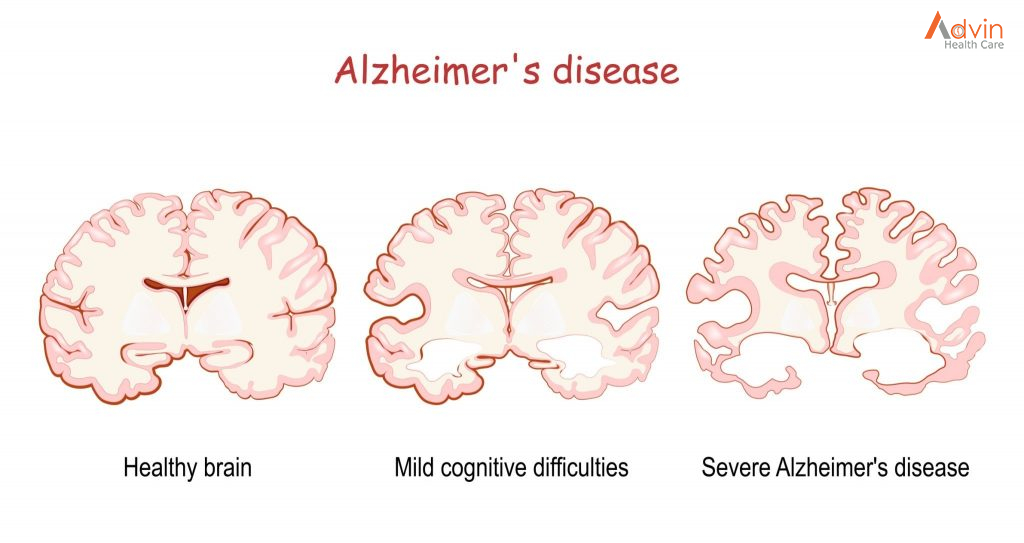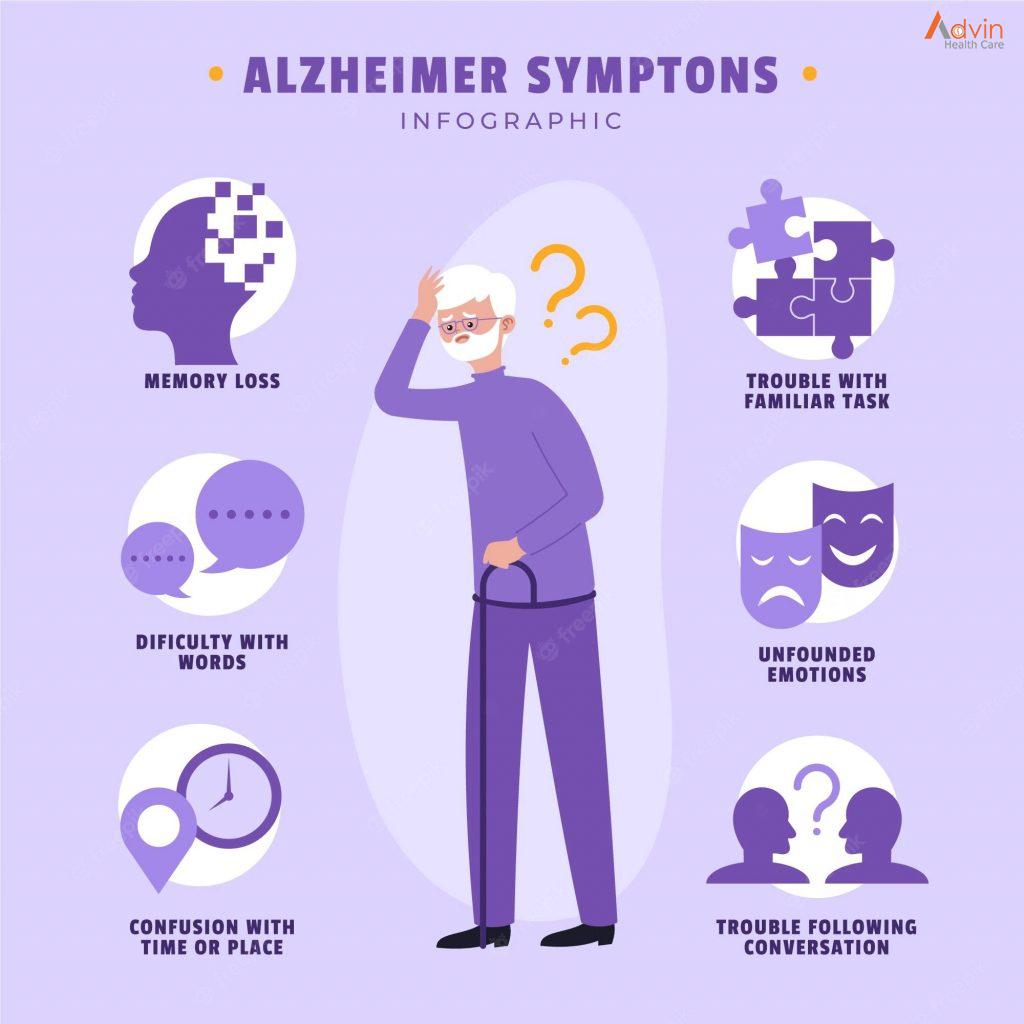Alzheimer’s disease causes a decline in memory, thinking, learning and organizing skills over time. It’s the most common cause of dementia and usually affects people over the age of 65. There’s no cure for Alzheimer’s, but certain medications and therapies can help manage symptoms temporarily.
What is Alzheimer’s disease?
Alzheimer’s disease (pronounced “alz-HAI-mirs”) is a brain condition that causes a progressive decline in memory, thinking, learning and organizing skills. It eventually affects a person’s ability to carry out basic daily activities. Alzheimer’s disease (AD) is the most common cause of dementia.
The symptoms of Alzheimer’s worsen over time. Researchers believe the disease process may start 10 years or more before the first symptoms appear. AD most commonly affects people over the age of 65.
How common is Alzheimer’s disease?
Alzheimer’s disease is common. It affects approximately 24 million people across the world. One in 10 people older than 65 and nearly a third of people older than 85 have the condition.
What are the stages of Alzheimer’s disease?

Alzheimer’s disease organizations and healthcare providers use various terms to describe the stages of Alzheimer’s disease based on symptoms.
While the terms vary, the stages all follow the same pattern — AD symptoms progressively worsen over time.
No two people experience AD in the same way, though. Each person with Alzheimer’s disease will progress through the stages at different speeds. Not all changes will occur in each person. It can sometimes be difficult for providers to place a person with AD in a specific stage as stages may overlap.
Some organizations and providers frame the stages of Alzheimer’s disease in terms of dementia:
- Preclinical Alzheimer’s disease.
- Mild cognitive impairment (MCI) due to Alzheimer’s disease.
- Mild dementia due to Alzheimer’s disease.
- Moderate dementia due to Alzheimer’s disease
- Severe dementia due to Alzheimer’s disease.
Other organizations and providers more broadly explain the stages as:
- Early.
- Middle.
- Late.
Don’t be afraid to ask your healthcare provider or your loved one’s provider what they mean when they use certain words to describe the stages of Alzheimer’s.
What are the signs and symptoms of Alzheimer’s disease?
The signs and symptoms of Alzheimer’s disease (AD) vary based on the stage of the condition. In general, the symptoms of AD involve a gradual decline in some, most or all of the following:
- Memory.
- Reasoning and handling of complex tasks.
- Language.
- Understanding visual form and space relationship.
- Behavior and personality.
People with memory loss or other signs of Alzheimer’s may have difficulty recognizing their mental decline. These signs may be more obvious to loved ones. Anyone experiencing dementia-like symptoms should see a healthcare provider as soon as possible.

How is Alzheimer’s disease diagnosed?
Healthcare providers use several methods to determine if a person with memory issues has Alzheimer’s disease. This is because many other conditions, especially neurological conditions, can cause dementia and other symptoms of Alzheimer’s.
In the beginning steps of an Alzheimer’s diagnosis, a provider will ask questions to better understand your health and daily living. Your provider may also ask someone close to you, like a family member or caregiver, for insight into your symptoms.
They’ll ask about:
- Overall health.
- Current medications.
- Medical history.
- Ability to carry out daily activities.
- Changes in mood, behavior and personality.
A provider will also:
- Perform a physical exam and a neurological exam.
- Perform a mental status exam, which includes tests to assess memory, problem-solving, attention, basic math and language.
- Order standard medical tests, such as blood and urine tests, to rule out other possible causes of the symptoms.
- Order brain imaging tests, such as a brain CT, brain MRI or positron emission tomography, to support an Alzheimer’s diagnosis or to rule out other possible conditions.


